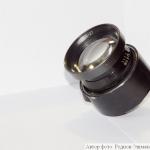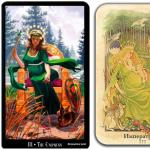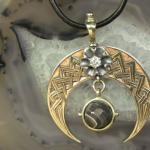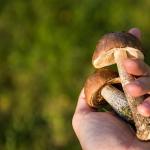Without exaggeration, mosquitoes can be called the most annoying, nasty, vile and thousands of times cursed insects of our vast Planet. These small, itchy and squeaky vampires have already drunk so much of our blood, literally and figuratively, that it would definitely be enough for the world's oceans. Mosquitoes live in the forest, taiga, swamps and in our cozy apartments, in general, it doesn’t matter where they live, the main thing is that there is some kind of water source where females could lay their eggs, and, in fact, an object of prey , from which they could get the coveted drop of blood.
What do mosquitoes eat in the forest?
Mosquitoes in the forest feed on various sugar-containing liquids, flower nectar, etc. Those. somewhat reminiscent of a hummingbird. They need sugar to maintain their livelihoods, and female mosquitoes need blood for reproduction and the formation of eggs, however, some of the blood can still be used by females as food, while males manage only nectar, the juice of flowers. A female mosquito, depending on the species, can lay 30 to 280 eggs every 2-3 days.
How do mosquitoes find their prey?
To search for a prey, the mosquito primarily focuses on the sense of smell, capturing the carbon dioxide released by the victim during breathing. Captures the smell of lactic acid released with sweat, as many as several kilometers from the victim, so mosquitoes are more likely to bite those who sweat more. Mosquitoes are also guided by infrared thermal radiation, which mammals, like a lantern, emit with the heat of their bodies. A sweaty hiker or hunter in the woods with a big backpack is the perfect target for mosquitoes.
Who gets bitten by mosquitoes more?
Mosquitoes bite more often people with high levels of cholesterol in the blood, they catch it with their senses, and such blood seems to them more attractive. Mosquitoes are also attracted to people with a high content of sex hormones: testosterone in men and estrogen in women. So-called "macho" mosquitoes are more attractive than men with less testosterone. They love mosquitoes and obese people with atherosclerosis, because of the same cholesterol. Pregnant women are also attractive prey for mosquitoes due to changes in hormonal levels, increased cholesterol levels in the blood. Before drinking our blood with you, the mosquito injects its saliva into the bite site, which contains anticoagulants that prevent blood clotting. Transmitted infections such as malaria, yellow fever, dengue fever, some encephalitis, tularemia (available in northern latitudes), etc. are transmitted with saliva. Saliva causes unpleasant itching, swelling and redness at the bite site, and often an allergic reaction.

Aedes aegypti - carrier of yellow fever and dengue fever
What are mosquitoes afraid of? Overview of funds
First of all, it is worth noting that mosquitoes do not tolerate heat, their activity is noticeably reduced already at +25 degrees. On a hot day in the sun, you are unlikely to meet mosquitoes, but in the late afternoon they will remind you of themselves. Also, mosquitoes do not like windy areas, so a well-blown clearing is preferable for the construction of hunting huts.
Ways to protect against mosquitoes in the forest and indoors:
1) Clothes. First of all, having gathered in the forest, you need to take care of your clothes. If you are in the middle lane, then you will meet relatively few mosquitoes compared to tundra wastelands, northern taiga forests or humid jungles. In the middle lane you might be able to get by with a death spray, but in the more remote areas you'll need a mosquito net, a fine-mesh mosquito hat, and long sleeves. This is the most reliable remedy both for mosquitoes in the forest, and for midges, gadflies, horseflies, which are not affected by chemicals based on deta.
When spending the night in a tent, it is advisable to smoke with a plate from an electric fumigator. It is recommended to burn mosquito coils not in the tent itself, but at least in the vestibule or in general in the open air. Some scientists consider the smoke from them harmful to humans.
2) Chemical repellents based on DEET. Ointments, aerosols. The most popular mosquito repellents are sprays and ointments containing dietitol amide (DEET, DEET). They are applied both to clothing and to bare areas of the body, such as the face, hands. The main purpose of repellents is to repel mosquitoes. The mosquito, smelling the same carbon dioxide, lactic acid and seeing infrared radiation, approaches you, but does not dare to touch, smelling, moreover, a substance dangerous to it. "Life is more expensive," thinks the mosquito's wife. However, with intense sweating, even the most effective ointments will not last you long. Many argue about brands, one remedy helps someone, it doesn’t help someone, but the most effective, according to experienced taiga dwellers, are Off, Moskitol and Gardeks preparations. You can also use other products, for example, Taigu, Carnation cologne, gasoline, etc. When chemicals are applied to bare parts of the body, such as the face, after profuse sweating, the skin begins to burn.
3) Electric fumigators. There are two types of electric fumigators that repel / kill mosquitoes. The first, such as "Raptor", "fumitox" - they are based on a heating element and a plate impregnated with chemicals that inhibit the actions of mosquitoes. The second are ultrasonic repellers that do not kill mosquitoes, but only scare away, not letting them get closer than 1 meter. They emit ultrasonic vibrations that are inaudible to the human ear, which the female mosquito is afraid of. These vibrations are nothing more than an imitation of the ultrasound emitted by a male mosquito. Of the serious disadvantages of these devices, the following can be distinguished: in different regions, mosquitoes make sounds of different frequencies, while the device is tuned to a certain frequency, and, therefore, working flawlessly in one region, it will be completely useless in another. Experienced taiga dwellers argue about the technical feasibility of scaring away with the help of such a device in general, and many are skeptical of these devices, considering them to be an ordinary swindler for money. Your obedient servant did not have the pleasure of using such ultrasound devices, so I cannot recommend them to you.
4) Folk remedies. Birch tar was considered the most popular folk remedy for repelling mosquitoes in Russia. It was mined from smoldering birch bark and mixed with some kind of oil, because tar cannot be used in its pure form. The tar repels both mosquitoes and midges and other midges, which are a huge misfortune of the taiga zone of Eurasia. From the midge it also helps to use vanillin. Mix with baby cream and apply to areas of the body. Popular sources say that mosquitoes do not tolerate the smell of anise oil, cloves, basil flowers, eucalyptus, tomato leaves, walnut leaves, elderberry branches, couch grass, valerian, lavender, thyme, geranium, mint, cedar oil.
If you forgot all the repellents at home, i.e. in hopelessness, you can use one folk method. Find an anthill in the forest, sit next to it, stretch your hands palms down at a distance of literally about a centimeter from the anthill. Hold this for about 2 minutes, then wipe unprotected areas of the body with these palms. If the ants bite you a little, then it's okay, it might even be better. Most likely, the matter is in formic acid, which is secreted by ants. Such a tool should somehow mitigate your suffering and your fate as a forest donor.
How to relieve itching after a mosquito bite?
Probably the most popular remedy for relieving unpleasant itching after a bite is alcohol, as well as colognes and various liquids containing alcohol. Also salicylic alcohol, boric alcohol, tincture of calendula, corvalol and valocardine, soda solution, a weak solution of vinegar, kefir, sour cream, tea tree oil, and various ointments sold in pharmacies.
Almost every person strives to learn about what mosquitoes are afraid of. After all, all people, regardless of gender, age and place of residence, met with these blood-sucking insects. They constantly squeak above the ear, bite and cause discomfort. It is quite predictable that people are trying their best to find a way to protect their homes from mosquitoes.
But, choosing methods to combat this type of insect, it is necessary to clearly understand how this or that remedy works. Since some modern insecticides can cause considerable harm not only to mosquitoes and midges, but also to our health.
Mosquitoes and their harm
It seems that everyone knows all the information about bloodsuckers. These insects are ubiquitous, excluding, perhaps, Antarctica. There are a lot of species of mosquitoes, in total there are about 3000 of them. On the territory of the Russian Federation, one of the most harmless varieties, known among ordinary people as a pisk mosquito, is found.
These insects are distinguished by an elongated small body, long legs and thin transparent wings, which emit a characteristic annoying squeak during flight. The females of this species have a characteristic proboscis, with the help of which they feed on flower nectar and suck blood during the mating season. Males, due to the lack of such a proboscis, are completely harmless.

It is important to remember that these insects prefer an environment with high humidity, they do not tolerate heat well. This is why mosquitoes often congregate in cool, shady areas and near large bodies of water. It is near swampy ponds and small rivers that the risk of being bitten is the highest. Especially during an evening walk.
In addition, it is known that mosquitoes react differently to different people. Surely, many have acquaintances whom these insects practically do not touch. Modern scientists suggest that it's all about the aromas that come from people.
Mosquitoes during their hunt seek out a suitable victim precisely by smell. The blood-sucking female insect reacts to special chemicals that are produced along with human sweat. But for each person, the body works in its own way, which is why mosquitoes do not bite someone. Such people have a different, specific smell that repels insects.

Dangers carried by mosquitoes
Getting rid of blood-sucking insects in your home is important not only because mosquitoes are annoying and uncomfortable. Females of these insects can often seriously harm the human body and cause serious harm to health. A mosquito bite can lead to the following consequences:
- infection with infectious diseases;
- the risk of infection of the bite site;
- the occurrence of an allergic reaction;
- chronic stress.
In many countries, mosquitoes are known as carriers of dangerous diseases and viruses. After a mosquito bite, the risk of contracting the following diseases is especially high:

- yellow fever;
- lymphatic filariasis;
- tularemia;
- dengue fever;
- malarial fever.
All these diseases are very serious. But this does not mean that you should panic after every mosquito bite, fearing the possible consequences. In the middle latitudes with a temperate climate, the viruses that cause these diseases are practically not found. Since our climate is not conducive to the survival of these pathogens.
But there is also a risk of infection of the wound itself, which remains after a mosquito bite.
When piercing the skin of the victim, these insects inject their saliva into the blood. Due to this, the blood becomes less thick, and it is easier for the bloodsucker to suck it. As a result, a person has irritation at the site of the bite, which many comb because of the incessant itching. Thus, the damaged area of the skin can be secondarily infected, and the wound becomes inflamed. In addition, a person may experience an acute allergic reaction to mosquito saliva.

Another major threat is stress. Mosquitoes, by the mere fact of their existence, annoy, annoy and interfere with sleep, this is well known to any person. Such stress can especially affect young children. Babies are afraid of strange sounds. In addition, the very fact of the presence of a "terrible" insect can make them nervous. That is why you can’t just brush off a child when he comes at night with a complaint: “I’m afraid of a mosquito!” On the contrary, it is worth reassuring the baby and helping to get rid of the squeaking bloodsucker.
Ways to protect against mosquitoes
Not all people are satisfied with modern and technologically advanced ways to deal with annoying bloodsuckers. Someone may prefer to use proven and cheap folk remedies. The most accessible are the following methods:
- Closed clothing.
- Strong smelling plants.
- Colognes and perfumes.
- Mesh on windows.
The easiest option is to wrap yourself in tight clothing, leaving no exposed skin. This is a fairly effective remedy, but it can cause discomfort, since mosquitoes are usually especially active in hot and stuffy weather. In addition, it is important to remember that protective clothing should be made of rough and dense material. Blood-sucking insects bite through thin tissue without difficulty.

Mosquitoes and midges navigate in space with the help of their sense of smell. Therefore, it would be logical to scare them away with a strong smell. The most effective against flying bloodsuckers can be the aromas of the following plants:
- citrus fruits: lemon, mandarin, orange;
- anise;
- eucalyptus;
- cedar;
- cloves;
- juniper;
- mint;
- fir.
In addition, mosquitoes do not like the smell of strong perfumes or cologne. To protect the house from insects, you can use essential oils or smoke the room with incense. But don't overdo it. A large amount of smoke or the presence of strong odors can be harmful to your body. Therefore, you should first think about what flavor mosquitoes will not tolerate, but your loved ones will not be afraid.

Another reliable tool is a simple mosquito net placed on the windows. A dense net of strong material will prevent insects from entering your home. But at the same time, it will allow you to ventilate the room.
Modern deterrents
Technology does not stand still. And thanks to this, now on the shelves of hardware stores you can find a lot of progressive and effective means of fighting mosquitoes. To date, the most widely used fumigators and repellents.
Fumigators are one of the most famous tools in the fight against flying bloodsuckers. They are easy to find in the store, they are cheap and at the same time effective. Such equipment is divided into 3 types according to the principle of operation:
- pyrotechnic;
- evaporative;
- repellents.

Pyrotechnic fumigators, when burned, produce a special smoke, which repels insects. They are economical due to the fact that they do not require energy sources to operate. Because of this property, they can be effectively used both at home and in nature, for example, inside a tourist tent. But it is important to remember that strong wind makes such fumigators useless. In addition, their smoke is toxic to humans and animals, so it should be handled with care.
Evaporative fumigators are the best known and most common. They are an electrical heating element that plugs into a household outlet. A plate impregnated with a special agent is placed on the spiral. When heated, the substance from the "tablet" evaporates and repels mosquitoes. But it is important to remember that such a fumigator should only be used in a ventilated area. You can not place it closer than 1 m from the bed. And doctors strongly do not recommend using such a device in a room where pregnant women or children are.

Repellents are another way to protect yourself from mosquito bites. These funds are classified as an individual type of protection. They are available in the form of ointments, creams and aerosols. Repellents are applied directly to the skin. That is why you need to carefully read the instructions before use, since the elements that make up their composition can cause allergies. Remember that this remedy is contraindicated in children under 4 years of age.
There are many ways to keep mosquitoes away from your home. It's easy to find them. You just need to decide on the method that is most suitable for you and your loved ones.
The microclimate in the house has characteristics favorable for human habitation. But such conditions also attract various insects, the most annoying of which is the mosquito. Although the means of protection against it are abundantly presented on the market, questions about getting rid of this scourge do not lose their relevance. And even more so, providing protection against mosquitoes is necessary in nature, since in the wild this insect is most aggressive. To ensure comprehensive prevention of this threat, you need to know what mosquitoes are afraid of and how to deal with them. As practice shows, both specialized and folk methods help in this matter. The main thing is to apply them correctly and, if necessary, combine them with each other. Special attention should be given to ways to protect children. Delicate skin attracts insects even more, but it is also sensitive to various ointments and sprays. Therefore, children's protection should be selected especially carefully.
What are mosquitoes afraid of?
Bloodsuckers, for all their malignity, are afraid of a lot, since their sensitivity is quite highly developed. Another thing is that a person is not always surrounded by substances and odors that have a deterrent effect on them. First of all, these are the natural aromas of plants. In the question of what smell mosquitoes are afraid of, you should mainly contact the representatives of the flora. Also noteworthy are the sound effects. But one aspect is important here. The fact is that the sounds captured by a person are not always effective in the fight against insects. To scare away a mosquito, for example, is possible only with ultrasound. There are different reactions in blood-sucking insects regarding the quality of the blood. Some human diseases affect its composition by rejecting insects.
What attracts mosquitoes?
As you know, it is better to prevent the occurrence of a problem than to deal with it in the future. With regard to mosquitoes, this rule can be followed if you know what they like. If you know the attracting factors, mosquito protection may not be required. So, the following attracts bloodsuckers:
- Humidity and warmth.
- The increased content of carbon dioxide, oddly enough, also acts on insects, like a magnet.
- Women, especially pregnant women, are more attractive than men.
- Fat people are also at risk.
- Dark clothing for a mosquito is like a red rag for a bull. Therefore, in the summer it is better to use light-colored wardrobe items.
If we continue the topic of people, it has long been noticed that one person is bitten more often than another. The fact is that, in addition to smells and visual factors, there is also a genetic predisposition of people whose blood attracts mosquitoes.
What smells repel mosquitoes?

As practice shows, in clean rooms, where not natural, but artificial odors prevail, the risk of meeting these blood-sucking insects is reduced. Therefore, first of all, midges are afraid of chemical odors from detergents and cleaning products. Sometimes these "aromas" suppress other attracting factors, getting rid of unpleasant insects. If we talk about what smell natural mosquitoes are afraid of, then camphor and valerian can be distinguished. For greater effect, it is better to provide a way to evaporate a small amount of these funds over the burner. As a rule, a few drops diluted with water are sufficient. This smell will scare away not only mosquitoes with midges, but also rid the room of flies. But do not forget that strong odors cause allergic processes in people.
Plants against mosquitoes

It is quite logical to continue talking about smells with living plants. Oddly enough, many of them repel insects not only with their aroma, but also with their appearance. In choosing one or another type of green protector, you need to know exactly which remedy will help, which plant. Mosquitoes are afraid, for example, ageratum. It will provide a double effect - the necessary smell and decoration. Basil is also multifunctional, which will get rid of the presence of mosquitoes, after which it will come in handy as an addition to a salad. Among the plants avoided by many varieties of flying insects is the lemon. In particular, lemon verbena or sorghum have a strong aroma, which, by the way, is used in perfumery. Among the vegetation available to any summer resident, one can name lemon balm, wormwood, mint and rosemary.
Folk remedies for mosquitoes
The oldest remedy for bloodsuckers is wheatgrass. However, the mere presence of this plant in the room will not be enough. It is necessary to prepare a special decoction. This is exactly what mosquitoes are afraid of. Folk remedies from wheatgrass are prepared as follows: pour a handful of chopped roots into 1.5 liters of water and boil until the broth acquires a yellow tint. In the future, the resulting tool can be used in different ways. For example, leave it on the windowsill or wash your face and exposed areas of the body with it. Also, these annoying blood-sucking insects are afraid of chopped leaves of fresh bird cherry, onion and basil. By placing such a mixture near the window, you can not worry about the visits of an unpleasant guest: mosquitoes avoid such smells.
Electric fumigators

The variety of electrical devices, the action of which is aimed at protecting against mosquitoes, is large, and everyone can find a suitable model. The simplest electrical protection against mosquitoes is represented by a fumigator. Usually aromatic plates impregnated with insecticide are inserted into it. The electric element heats the plate, and substances harmful to blood-sucking insects evaporate and enter the air. There are also liquid fumigators. In them, the insecticide evaporates not from the plate, but from the rod dipped into a special liquid. Fumigators show relative effectiveness, but they cause some discomfort to the people themselves in the form of a pungent odor.
Electronic mosquito protection
Another protection option is an ultrasonic repeller. Its principle of operation is based on the propagation of ultrasonic waves, which are not picked up by humans, but for insects they are quite sensitive. The only disadvantage of such devices is that an unprepared person will have to experiment with the settings for the first time, since ultrasound against mosquitoes will be truly effective only if the wave frequency is correctly selected.
The most effective tool in this category is a device that emits magnetic pulses. It not only provides a deterrent effect, but also kills insects as they approach the house, or at least disorients them. Unfortunately, such devices are expensive, and it is very difficult to find them on the market.

Features of protection in nature: repellents
Protective agent in nature should be point. The optimal scheme: to smear open areas of the body before going for a walk or a trip out of town and forget about bloodsuckers for at least a few hours. So, what can be the protection against mosquitoes in nature or in the country? These are special ointments, creams, lotions and sprays. They should be treated with skin or clothing. Such remedies are called repellents and can be prepared at home. The classic recipe involves the use of vegetable oil and 9% vinegar with shampoo. The components are mixed into a homogeneous emulsion in a ratio of 1 to 1. Further, this product can be used as a soap or ointment, with the difference that it does not need to be washed off.
You can also use other means of protection in nature. For example, if spruce or pine branches are available and a fire is planned, then the smell of smoldering pine needles will provide the same deterrent effect. In addition, you should provide good protection for the tent itself at night. For this purpose, mesh cloths with a small cell are used, which physically do not allow mosquitoes.
How to save children?
As already mentioned, children and women are most attractive to blood-sucking insects. The situation is complicated by the fact that the most effective methods of protection for the child are undesirable. One way or another, protection against mosquitoes for children must be provided, and the following rules must be followed in its application:
- Use only repellents that are appropriate for the age category.
- Do not apply special creams and lotions on the face, as sweat can drain to the eyes and mouth along with toxic substances.
- Apply repellents in a thin layer, without rubbing into the skin and bypassing the wounds.
- After the child enters the room, immediately wash off the applied formulations.
If general protective equipment is used in the form of the same fumigators, then the child should be at the maximum possible distance from them.
What to do about bites?

In most cases, a mosquito bite does not entail complications, and, as a rule, the inconvenience is limited to only itching, which causes discomfort. However, for children and those who suffer from allergies, such bites can be dangerous, so appropriate measures should be taken. If mosquito protection has not justified itself, it is worth resorting to traditional medicine and treating the affected areas according to the following recipes:
- Attach chopped garlic or onion to the bite site. This will relieve swelling and provide a disinfectant effect.
- Crushed mint and parsley leaves also have a soothing effect on the inflamed wound.
- Plantain applied to the bite relieves unpleasant symptoms after 20 minutes.
- An aloe leaf, cut lengthwise, relieves irritation.
- Using the "Asterisk", you can not only restore the affected area, but also scare away other mosquitoes.
Traps
As a rule, these are simple devices with which you can catch mosquitoes. They act due to the attracting factor, as a result, collecting and neutralizing harmful insects. In this case, you do not need to think about what mosquitoes are afraid of, since their appearance will not bring any trouble. The simplest trap is an adhesive tape that already contains the necessary enticing substances. Flying to such a strip, mosquitoes stick to it tightly, not having time to profit from the blood of people. Another trap can be made with your own hands if the adhesive tape is not at hand. Its basis will be a bottle with a cut off top. Warm water is poured into the container, into which you can then put the yeast. Next, the bottle is closed with a lid laid neck up. Mosquitoes will fly in, feeling the warm fumes of the yeast, and fall into the center of this trap.
Conclusion

As you can see, there are many means for combating mosquitoes, provided for different cases. The choice of a specific protection method should be based on the conditions under which it is supposed to be provided. Also, do not forget about what mosquitoes are afraid of and what factors act on them as repellers. Since most methods still involve the use of potent chemicals and aromatics, one must remember the individual characteristics of a particular person. The same plant smells can cause allergic reactions over time, and overuse or misuse of insect repellents can cause skin problems.
Good evening, dear friends! This summer turned out to be rainy, and for this reason, the mosquito population has increased. I don’t really like these bloodsuckers, and when the child appeared, I can’t stand their presence at all.
Our baby does not tolerate mosquito bites well, she has an allergic reaction that lasts for a long time.
Therefore, we were looking for a variety of ways that could scare away insects. If it is easier for adults to choose a drug that neutralizes bloodsuckers, then with a child everything is much more complicated.
Children do not want to use chemistry, in connection with this we began to try folk methods. In this article you will learn: what mosquitoes are afraid of, smells that repel insects, ways to protect against mosquitoes in nature and at home.
The strongest scents that repel mosquitoes
Smells that repel mosquitoes are both natural and chemical. All of them provide reliable protection. Their diversity allows the use of aromatherapy in the fight against insects at home or on the street. Mosquitoes are very afraid of plants with a strong smell.

Often their aroma is very pleasant for humans, but unbearable for insects. This allows you to get an additional advantage in the use of natural methods of protection.
- Elder.
- Bird cherry.
- Coniferous.
- Citronella and geranium.
- citruses. Also, mosquitoes are repelled by the smell of lemons, lime, grapefruit or orange.
- Carbolic acid.
- Fish fat.
- Soy sauce.
It is one of those plants whose juice and smell do not like bloodsuckers. When choosing a picnic site, you can settle closer to this perennial bush.
To provide protection at home, you will need to chop the elderberry leaves and arrange on plates. Put the dishes on the windowsills. Insects will not be able to enter the house until the strength of the smell decreases. The material should be changed as it dries.
This smell is associated with the onset of spring. The pleasant and gentle aroma of the plant will perfectly repel mosquitoes. You can plant trees in the area near the house or break lush bouquets of branches.
Inhaling the aromas of pine needles is very useful for a person, so this method of protection against mosquitoes has a double effect.
Insects do not tolerate the smell of spruce, pine, juniper and fir. Both the needles themselves and the cones are used. In Siberia, they learned how to make homemade repellers from fir cones.
These two plants should be separated into a separate group. Since it is their extracts or essential oils that are used to prepare synthetic insect repellents.
In small concentrations, plants are used to prevent mosquitoes from biting a child. It is enough to put a few drops of essential oil on the hood of the stroller to protect the baby during the walk.
There are even special repellers that are easy to make from lemon and cloves. For protection, it will be enough to place saucers with such devices around the perimeter of the table or in the room.
This tool is known as an effective antiseptic and is able to have a bactericidal effect. This ingredient is also used in the fight against bloodsuckers. It is enough just to sprinkle the head of the bed and the walls or wipe the surfaces with a soft cloth dipped in the solution.
He is not loved not only by children, but also by blood-sucking insects. If you smear exposed areas of the body with this ingredient, then insects will not be able to bite. In this way, they provide salvation from bites and many other flying insects.
The easiest way to drive bloodsuckers away from a person during a picnic is to make a fire. Smoke completely deprives insects of the ability to navigate in space. For effect, you can throw dry grass into the fire.
It will provide a lot of smoke. It is also worth remembering the fact that mosquitoes do not tolerate the smell of conifers, and add fir branches or cones to the fire.
For a person, it practically does not smell, but is able to provide salvation from bites throughout the night. To do this, you just need to put a small bowl of liquid on the bedside table.
Also, blood-sucking insects are afraid of the smells of valerian, mint, lemon balm, cinnamon, thyme and garlic. To protect them, you can lay them out in the room, prepare infusions or apply prepared decoctions to the body and clothes.
How to fight mosquitoes with scents
Many modern drugs are based on the ability of pungent odors to scare away bloodsuckers. But long before the advent of chemistry, this feature was used to fight insects with folk remedies. Reliable and effective ingredients can be found in every home.
vanilla syrup
Fragrant pastries with vanilla to the liking of adults and children. For mosquitoes, this smell has the opposite effect. Bloodsuckers lose the ability to smell the victim. Classic vanillin powder is used for protection.
To prepare a mosquito repellent, dissolve 1 sachet of mosquito repellent in 1 liter of cold water. Pour the resulting liquid into a container with a spray bottle and treat the skin and clothing.
Vanilla cream is also prepared. To do this, you need to take any baby soft cream and add vanillin to it. Mix the ingredients thoroughly and anoint with the resulting substance. This safe and effective remedy can be used even by the youngest children.
clove cocktail
Another representative of the world of spices, the aroma of which relieves blood-sucking insects for a long time:
- Pour 200 water 5 g dried clove buds. Bring to a boil, boil for another 15 minutes. After that, cool the broth and strain. Pour the resulting liquid into a spray bottle and process clothes.
- Mix clove water with any available cologne. Before heading out into nature, simply spray yourself with updated perfumes.
Essential oils
Aromatherapy can not only calm and stimulate, but also help to escape mosquitoes. The power of essential oils is used to protect the home or outdoors. In order not to bite mosquitoes in nature, you should apply a few drops to the pulsating points.
Essential oils leave greasy marks on clothes, so you should be very careful when applying them to the body.The following varieties are most effective:
- citronella;
- geranium;
- eucalyptus;
- geranium;
- anise;
- tea tree;
- lavender.
You can add essential oil to any cream. This will slightly reduce its concentration and reduce the risk of developing allergic reactions. Before use, be sure to test for skin sensitivity.
The oils are very concentrated and are not recommended for people with hypersensitive skin.
You can get rid of mosquitoes indoors with the help of an aromatic lamp. It is enough to add a few drops of any of the listed oils. As a result, a light and pleasant aroma will soar in the room, and mosquitoes will try to stay away from this place.
Ammonia
The strong specific smell of ammonia is able to provide a good night's sleep. To do this, soak a piece of cloth in the ingredient and treat the surfaces in the house. Particular attention should be paid to window sills, window and door frames.
A person will cease to smell in a few minutes, and for insects this will become a real obstacle on the way to the victim. Mosquitoes will simply lose their orientation and will not be able to get to the right place.
It is important to understand that folk remedies act only as long as their aroma is felt on the skin or clothes. Therefore, you will often have to reuse them to renew the defenses of the fragrance.Thus, knowing what repels mosquitoes will help provide protection for the whole family without having special tools at hand. And the safety of these methods allows them to be effectively used even to protect small children.
Source: "apest.ru"
What mosquitoes are afraid of: improvised means
Salvation from mosquitoes can be found not only in the first aid kit, but also in the kitchen. Moreover, if you make an audit in your cosmetic bag, then the chances of spending the summer without bites will increase significantly.
Vanillin
You can drive away mosquitoes with a pleasant and even cozy smell of vanillin. It is sold in regular stores. You need to buy not sugar, but vanillin powder. It is enough to dilute the natural repellent in boiled water in the proportion of 20 g per 1 liter, and then use it at your discretion:
- Put in open bowls throughout the room;
- Periodically apply to the skin from a spray bottle;
- Soak your clothes.
On the nature from mosquitoes with you it is more convenient to take a cream with vanillin. In an airtight jar, it will retain its properties for a long time and reliably scare away midges. To prepare it, it is advisable to take a neutral baby cream and mix with vanilla in a ratio of 10: 1 until smooth.
Valerian
Valerian is no less effective against mosquitoes. Alcohol infusion is applied to the wrists or behind the ear, such "spirits" in nature scare away bloodsuckers no worse than special sprays or lotions. To increase the area of protection, valerian is diluted in water 20-25 ml per 1 liter, and then sprayed from a spray bottle into the air or onto the body.
Clove and citrus
If the kitchen has a bag of clove buds and citrus fruits, then you can get rid of mosquitoes in a rather non-standard way. They are afraid of the smell of these products.
Cut a lemon or orange in half and stick 10-15 clove buds into the pulp. Such an impromptu interior decoration will enliven the atmosphere and repel mosquitoes.
Essential oils
Essential oils will be a real salvation, they save not only from mosquitoes, but also from other annoying insects. It is better to take camphor, eucalyptus, anise or clove. Pine tree oils are also sources of natural repellents.
They are mixed, applied drop by drop to the skin or soaked in cotton sponges and laid out around the room. You can drop a few drops into the water, and spray it already.Essential oils can be heated in an aroma lamp - their smell will reliably scare away mosquitoes. Camphor is even calcined in a frying pan and carried through the rooms. Its aroma repels mosquitoes better than any fumigator.
Plants
Plants are natural repellents in nature. It is clear that growing vanilla or clove at home is almost impossible. But a more familiar geranium will scare away mosquitoes for a long time. Modern selection allows you to break away from the stereotyped "grandmother's rolls" on the window.
There are varieties that will fit into any, even the most modern interior. The plant can be planted in a pot and placed on the windowsill, in floor flowerpots it will create a barrier next to doorways.
The decorative flower adapts perfectly in flower beds and along paths. In addition to geraniums, there are many other plants that repel mosquitoes. Among the herbs, the presence of which in a pot will delight at any time of the year:
- basil;
- Melissa;
- mint;
- rosemary;
- lavender.
They are decorative in the interior, will be useful in the kitchen and will fit perfectly into any garden. These green helpers are probably known to everyone, but there is also a whole list of plants that repel mosquitoes for a long time.
Especially if you plant them around the perimeter of the site and the house. The double barrier helps mosquitoes simply fly around you.Which plants repel mosquitoes and at the same time improve the appearance of the yard:
- Ageratum.
- Kotovnik.
- Marigold.
- Citronella.
- Monard.
Lovely fluffy inflorescences will be a great solution for the border. White, pink, purple - they create a feeling of a holiday that mosquitoes will not overshadow. After all, the plant secretes coumarin, which they are afraid of.
Fragrant catnip leaves can be rubbed in the hands or on the skin. If there is no allergy, this is a sure way to attract the attention of cats from all over the area and repel mosquitoes. However, the slightest gust of wind will notify them about the plant anyway.
Bright sunny bushes have long been used not only for decoration: they disinfect the soil, save themselves from garden and garden pests. At the same time, they will definitely help drive mosquitoes away from home. Just plant them in protective strips or flower beds.
This plant, which mosquitoes are really afraid of, has many names, the most famous is lemongrass or lemongrass. The extract of the plant is widely used for the production of mosquito repellents: bracelets, creams and lotions.
The only problem is that this perennial requires a warm wintering.
Alternatively, you can opt for lemongrass or lemon verbena, heat-loving but reliable mosquito repellents. They produce almost the same set of substances that repel mosquitoes.
Tall flowering plants can create an excellent decorative effect, and due to the special smell, they will also scare away mosquitoes.
If you set a goal, then protecting yourself from mosquitoes is quite easy. After all, they are afraid of strong aromas. In nature, sources of a wide variety of odors are more than enough. True, you must first check how they suit you personally. The risk of an allergic reaction cannot be ruled out.
Source: "vredinfo.ru"
Ways to protect against mosquitoes in the forest and indoors
- clothing
First of all, having gathered in the forest, you need to take care of your clothes. If you are in the middle lane, then you will meet relatively few mosquitoes compared to tundra wastelands, northern taiga forests or humid jungles.
In the middle lane you might be able to get by with a death spray, but in the more remote areas you'll need a mosquito net, a fine-mesh mosquito hat, and long sleeves.
This is the most reliable remedy both for mosquitoes in the forest, and for midges, gadflies, horseflies, which are not affected by chemicals based on deta. When spending the night in a tent, it is advisable to smoke with a plate from an electric fumigator. It is recommended to burn mosquito coils not in the tent itself, but at least in the vestibule or in general in the open air.
Some scientists consider the smoke from them harmful to humans.
- Chemical repellents based on DEET
Ointments, aerosols. The most popular mosquito repellents are sprays and ointments containing dietitol amide (DEET, DEET). They are applied both to clothing and to bare areas of the body, such as the face, hands. The main purpose of repellents is to repel mosquitoes.
The mosquito, smelling the same carbon dioxide, lactic acid and seeing infrared radiation, approaches you, but does not dare to touch, smelling, moreover, a substance dangerous to it. “Life is more expensive,” thinks the wife of the mosquito.However, with intense sweating, even the most effective ointments will not last you long. Many argue about brands, one remedy helps someone, it doesn’t help someone, but the most effective, according to experienced taiga residents, are Off, Moskitol and Gardeks preparations.
You can also use other means, for example, "Taiga", cologne "Carnation", gasoline, etc. When chemicals are applied to bare parts of the body, such as the face, after profuse sweating, the skin begins to burn.
- Electric fumigators
There are two types of electric fumigators that repel / kill mosquitoes. The first, such as Raptor, Fumitox, are based on a heating element and a plate impregnated with chemicals that inhibit the actions of mosquitoes.
The second are ultrasonic repellers that do not kill mosquitoes, but only scare away, not letting them get closer than 1 meter.
They emit ultrasonic vibrations that are inaudible to the human ear, which the female mosquito is afraid of. These vibrations are nothing more than an imitation of the ultrasound emitted by a male mosquito. Of the serious disadvantages of these devices, the following can be distinguished: in different regions, mosquitoes make sounds of different frequencies, while the device is tuned to a certain frequency, and, therefore, working flawlessly in one region, it will be completely useless in another.
Experienced taiga dwellers argue about the technical feasibility of scaring away with the help of such a device in general, and many are skeptical of these devices, considering them to be an ordinary swindler for money. Your obedient servant did not have the pleasure of using such ultrasound devices, so I cannot recommend them to you.
- Folk remedies
Birch tar was considered the most popular folk remedy for repelling mosquitoes in Russia. It was mined from smoldering birch bark and mixed with some kind of oil, because tar cannot be used in its pure form. The tar repels both mosquitoes and midges and other midges, which are a huge misfortune of the taiga zone of Eurasia.
From the midge it also helps to use vanillin. Mix with baby cream and apply to areas of the body.Popular sources say that mosquitoes do not tolerate the smell of anise oil, cloves, basil flowers, eucalyptus, tomato leaves, walnut leaves, elderberry branches, couch grass, valerian, lavender, thyme, geranium, mint, cedar oil.
If you forgot all the repellents at home, i.e. in hopelessness, you can use one folk method. Find an anthill in the forest, sit next to it, stretch your hands palms down at a distance of literally about a centimeter from the anthill.
Hold this for about 2 minutes, then wipe unprotected areas of the body with these palms.
If the ants bite you a little, then it's okay, it might even be better. Most likely, the matter is in formic acid, which is secreted by ants. Such a tool should somehow mitigate your suffering and your fate as a forest donor.
Source: "volnomuvolya.com"
Folk remedies for mosquitoes and midges
Summer is the best time of the year, you can spend a lot of time in nature. In Karelia, not a single summer is complete without mosquito bites. Our republic is considered a mosquito land. We have many rivers and lakes, high humidity.
Mosquitoes and midges are especially fond of children and people who sweat a lot. They attack most often in the evening, before sunset.Now there are white nights in Karelia, you can work longer in the garden, take a walk, but going out into the street can be simply unbearable. They poison our existence. We have to protect ourselves from bloodsuckers by all known methods. I try not to use chemicals.
For protection, you can use folk remedies for mosquitoes and midges. Mosquitoes and midges are afraid of simple folk remedies no less than purchased chemicals. All people have different sensitivity to bites. Many can survive more than one bite, but for people with hypersensitivity, one bite can bring a lot of trouble.
The skin begins to redden and swell, severe itching begins. After some time, the redness disappears, but itching and swelling still persist. This is how a local allergic reaction manifests itself. In some cases, urticaria, itching and general weakness appear.
There are also severe cases in which abdominal pain, vomiting, shortness of breath, dizziness begin. If a person cannot tolerate a mosquito bite, there are even shock states.
Bites from mosquitoes and midges lead to scratching, and this leads to infections. Now in our country cases of infection with malaria are registered. The source of infection are malarial mosquitoes. People often think that malarial mosquitoes are huge mosquitoes, weevils. In fact, weevils are completely harmless.
And malarial mosquitoes look almost like ordinary mosquitoes, only a little larger, and the body is raised up. Previously, midges were destroyed with the help of toxic chemicals. Huge areas were processed. This method was considered one of the most effective.
Currently, processing is not carried out in bulk, but is done only on a commercial basis.So, for example, we process camps for the rest of children who are in the forest zone. Therefore, the number of bloodsuckers does not decrease, but only grows. We have to think about ourselves, we have to invent a variety of methods of protection. Can be used to repel repellents. Fumigators are used to scare away.
Mosquito nets are installed on windows, vents, ventilation hatches. Nets do not allow bloodsuckers to enter the room. Folk remedies give a good effect:
- Mosquitoes and midges do not like the smell of tomatoes. Place a few pots of tomato bushes on the windowsill, and mosquitoes will bypass your house.
- From folk remedies for midges and mosquitoes, you can advise the essential oils of cedar, eucalyptus, anise, cloves.
- Take a piece of cotton wool and put a few drops of any of the essential oils on it. Leave on the windowsill, or rub on the skin.
- Mosquitoes and midges are repelled by fresh elderberry broom, valerian, smoke from spruce and pine cones.
And if you are still bitten by a mosquito or midge, learn to cope with this disaster with the help of folk remedies. To relieve swelling and itching, treat the sore spot with boric alcohol.
Suitable for this and tincture of calendula, valocordin, corvalol. To reduce itching and swelling come in handy:
- bulb cut,
- sour cream,
- nettle juice.
A cold compress of ammonia, or apple cider vinegar, baking soda, and even vodka will also help out. To make a compress, you need to dissolve 1 teaspoon of the product in a glass of water. Wipe the sore spots well with the prepared solution.
And when, after insect attacks, my skin swells strongly, and nothing is at hand, I prepare myself the simplest folk remedy.It is always easy to cook, any housewife has salt. Salt gruel always helps. We prepare it like this: mix salt with water, apply to a sore spot. Usually at the beginning there is a slight tingling, and then there are no traces and marks left, the skin does not comb.
No, no, we don't have to boil the "symbol of the revolution" - a red carnation - in a saucepan. It's about spices. You need to buy dried clove buds in the market or in the spice department. Take 5 g of cloves, pour a glass of water and boil for 15 minutes.
Then you need to pour a little broth and mix it with any cologne. Now smear on health, fragrant for the whole forest. Mosquitoes will not bother you for 2 hours.
There is an even simpler way - to buy the cheapest odorous cologne in the store. But this remedy is not for the faint of heart. Refined ladies accustomed to French perfume are unlikely to do.
Oil aromas
Of course, not vegetable oil, but essential. It is necessary to create unbearable conditions for mosquitoes - for example, to scare them with a smell that they really do not like. And mosquitoes hate the smells of anise, clove, eucalyptus and basil. A few drops of any of these essential oils should be mixed with cream or milk, after which you can smear without restrictions.
Only the skin will become softer, because essential oils are very useful! At home, oil can be dripped on an aroma lamp, on the street - on some firebrand in a fire. And by the way, if the bloodsucker has already bitten you, you can lubricate the attack site with essential oil, it quickly relieves itching and irritation.
It seems that this fragrant remedy is perfect, first of all, for children.old tar
This is a primordially Siberian, taiga folk remedy. You can’t smear the body with it, you can burn it, first you need to mix a little tar with cream. And even better - smear a fine mesh with tar and throw it on a panama hat or cap.
Mosquitoes, as well as midges, as well as horseflies, hornets and other riffraff will immediately fly away. Moreover, tar also repels ticks. But this year the ticks in Tomsk just went berserk! Here is such a universal, wonderful folk remedy.
About the benefits of fish oil
It turns out that they are not only stuffed with babies. Not only children, but also mosquitoes do not like fish oil. Lubricate exposed areas of the body with fish oil, and nasty insects will leave you behind.
Bonfire from cones
As we have already said, mosquitoes do not like many smells (however, they are picky!), and among them are coniferous aromas. Throw spruce and pine cones, coniferous twigs into the fire, and this smoke will instantly disperse mosquitoes. And also those who sit by the fire ...
In the garden - elderberry
If in your garden, according to a popular saying, a large elderberry has grown, pick branches from it and put this armful in the room. Mosquitoes will immediately leave from there.
Mosquitoes and midges also do not like the smells of camphor, valerian, lemon, lavender, frankincense, they are afraid of tomato leaves, flowers and leaves of bird cherry, the smell of "Caucasian chamomile" - pyrethrum, decoctions from the roots of wormwood or wheatgrass.
Source: "lmoroshkina.ru; krasota-tomsk.ru"
Smells that mosquitoes are afraid of
Mosquitoes have a very sensitive sense of smell. Smell is the main locator on the way to prey - people and animals, sources of tasty and warm blood. The carbon dioxide we exhale and the complex mixture of secretions from our skin are irresistible bait for annoying bloodsuckers.
This is the basis for the innovative action of the Mosquito Magnet mosquito traps, which emit CO2 and in addition to it the organic attractant contained in the Octenol bait, which perfectly mimics the scent of our skin.
However, there are smells that mosquitoes vehemently hate and fear. They can be used to keep mosquitoes at bay. Without using chemicals and other means of mass destruction. Here are 10 commonly available herbal remedies that keep mosquitoes away.
- Citronella.
For a resident of the New World, this plant of the bluegrass family is the first thing that comes to mind when talking about mosquito control. In Russian, the names lemongrass, lemongrass, or cymbopogon are more common. Citronella oil is widely used in the manufacture of household sprays, coils and candles against insects.
It has a citrus aroma that is pleasant to the human nose, but terribly annoying to mosquitoes.
Lemongrass can be grown right outside your home as a pretty and highly effective mosquito repellent. Citronella oil can be applied to the skin alone or combined with other repellants to provide long-lasting bite protection.
- Peppermint.
The minty aroma is not very pleasant to the sensitive sense of smell of mosquitoes. The slightest presence of mint in a garden plot keeps those pesky neighbors away.
From plants, you can prepare personal protection if you finely chop mint leaves and rub the skin with this mass. For mosquitoes you will become unbearable! If you have already been bitten by an insect, then mint will help to quickly relieve swelling and inflammation.
- Basil.
Basil essential oils exude a strong aroma that is very annoying to annoying flying rodents. You can appreciate all the possibilities of basil by planting it in a flower bed, in a box or in a pot, as well as preparing a homemade mosquito repellent based on fresh basil leaves.
- Garlic.
Like its close relative, onions are an edible insect repellant. When we eat a clove of garlic, its active component, allicin, mixes with our natural smell and makes it highly unattractive to mosquitoes. We look to them like a spoiled product that is better to fly around.
But garlic can be used against insects without eating it.
Finely chop the garlic cloves and sprinkle the pieces around your yard. Garlic crumb can also be mixed with aromatic oils (melissa, lemongrass, etc.) to intensify the smell and fill the entire yard with it.
By grinding the mixture in a blender, you can also prepare a protective ointment for the body, the main thing is to prevent it from getting into the eyes and sensitive mucous membranes. Believe me, not a single self-respecting mosquito will fly up to a person who smells of garlic for any gingerbread!
- Melissa.
This plant in the mint family has a soothing aroma that all unwanted insects find extremely unpleasant. But bees, butterflies and people adore the smell of lemon balm. Plant this pretty plant in an area that needs to be protected from mosquitoes.
Use the crushed parts of the plant to make anti-mosquito ointments. Well, the leaves will always find use in the preparation of herbal teas as an excellent sedative.- Lavender.
People dedicate songs to this flower, but mosquitoes categorically disagree with them. They do not like the strong smell of these purple flowers and try to stay away from them at all costs.
Like most of the plants on this list, lavender can be used as a living source of essential oils in a flower bed or on a windowsill, and as a raw material for making homemade insect repellent creams that are applied to the skin and hair. In addition, planted in the garden, lavender with its lush purple flowers will wonderfully decorate your landscape.
- Calendula.
These bright flowers, which we call marigolds, are notable for their sharp aroma and healing properties. Calendula has an amazing effect on mosquitoes. Plant these bright orange flowers in your garden and yard and mosquitoes won't stick their nose out.
From time to time, flowers can be cut and placed in vases around the rooms to stop the attempts of bloodsuckers to climb into the holy of holies - your home.
Marigolds are not only a decoration of the site, but also an excellent antimicrobial and antifungal agent and seasoning component.
- Kotovnik.
It is often called catnip for the love that mustachioed and striped have for this grass. Alas, mosquitoes in no way share this weakness of our fluffy pets and are afraid of it like fire.
According to Science Daily magazine (perhaps slightly exaggerated), catnip is 10 times stronger than Deta in its repellant properties. The plant is planted in open ground and in boxes to protect the garden from mosquitoes and small flying midges. Leaves can be added to tea as an excellent sedative and hypnotic.
- Rosemary.
If you are preparing a barbecue, it is enough to put a few drops of juice from rosemary leaves on the grate and mosquitoes will not come close to your site for thirty steps, so they are frightened by the aroma of this plant, which the human sense of smell really likes.
Add rosemary leaves to lotions and they will protect exposed skin from stings for the duration of your time outdoors.
- Eucalyptus.
British colonists discovered the unique properties of this tree shortly after landing in Australia. There was no malaria in the eucalyptus groves! Along with citronella, eucalyptus is one of the most effective plants in mosquito control. Essential oils of eucalyptus repel and disorient not only mosquitoes and mosquitoes, but also ticks.
Once in the atmosphere of a eucalyptus tree, arthropods cannot detect prey and eventually die of starvation.
It is very difficult to grow a eucalyptus tree far from the tropics and subtropics, but it is worth using ready-made sprays with eucalyptus oil to protect against mosquitoes during the entire period of activity of blood-sucking insects.
It seems to many that a mosquito bite is a trifle of life. At the same time, the problem that bloodsuckers create in the warm period is relevant for everyone. After all, annoying insects will not let you rest in peace. It should be borne in mind that a mosquito bite can cause not only constant itching and swelling of the skin, but also dermatitis and allergic reactions. If you actively scratch the affected skin, you can severely scratch it, and infection can penetrate through open scratches. Which is also very dangerous for human health.
It is for this reason that many are looking for remedies that will help them get rid of blood-sucking insects. In this case, the tool should be not only effective, but also cheap. In this case, alternative medicines that have been used for many years can be an ideal option. It is worth noting that folk remedies against mosquitoes are the safest. This moment is very important. After all, for example, in children, the skin is very delicate, and the usual mosquito repellent can be harmful, causing severe irritation.
 1. To combat harmful insects, you can use the well-known spice - cloves. Dried flower buds of this plant can be purchased at any grocery store.
1. To combat harmful insects, you can use the well-known spice - cloves. Dried flower buds of this plant can be purchased at any grocery store.
And so that mosquitoes do not get bored, pour a glass of water with only five grams of spice. Put the container on the fire and bring the broth to a boil. Boil everything for 15 minutes. After that, mix a small amount of the prepared broth with cologne, and then lubricate all exposed skin with it.
It is worth noting that this folk remedy will perfectly protect against mosquitoes for several hours. In addition, such a drug can even be used to protect children. Useful tips in the article.
2. Another effective folk remedy for mosquitoes that works flawlessly is the essential oils of various plants. After all, there are smells that repel blood-sucking insects. These aromas include the smell of cloves, basil, eucalyptus and anise.
You can buy these oils at the pharmacy. Add just a few drops of essential oil to any foundation, such as cream or milk, and apply to exposed skin. Essential oil can also be dropped onto a heater or into a fire.
3.  If a mosquito has already bitten, then tea tree essential oil will help relieve irritation and unpleasant itching. Camping is hard to imagine without a fire. To scare away mosquitoes, throw a few spruce cones into a burning fire, which are full in the forest. You can also put dry branches of spruce or pine into the fire. The smoke coming from such a fire perfectly repels annoying insects.
If a mosquito has already bitten, then tea tree essential oil will help relieve irritation and unpleasant itching. Camping is hard to imagine without a fire. To scare away mosquitoes, throw a few spruce cones into a burning fire, which are full in the forest. You can also put dry branches of spruce or pine into the fire. The smoke coming from such a fire perfectly repels annoying insects.
4. Fish oil is considered an excellent mosquito repellent. Insects do not like the smell of the product itself. Therefore, you can lubricate exposed areas with fish oil, and mosquitoes will not bother you for a while.
What are mosquitoes afraid of?
To protect yourself and your family from mosquitoes at night, you can lubricate the head of the bed with essential oil or put a decoction made from unopened carnation flowers on the bedside table. You can drop essential oil on a night light so that it hits a light bulb.
 The most effective mosquito repellent in the home is a weed like wheatgrass. A decoction of the roots of this herb helps to get rid of blood-sucking insects for a long time.
The most effective mosquito repellent in the home is a weed like wheatgrass. A decoction of the roots of this herb helps to get rid of blood-sucking insects for a long time.
Another tool is a mosquito net. Install it on the windows, and mosquitoes simply cannot get inside. You can replace the mosquito net with ordinary gauze folded in several additions.
It should be attributed to folk remedies and elderberry. The fresh branches of this shrub are excellent at repelling mosquitoes.
How to cure bites?
First of all, you should come to terms with the fact that none of the remedies will help to get rid of insects one hundred percent. Of course, they will bite much less. After all, there are individuals resistant to odors that perfectly tolerate aromas that are unpleasant for others.
There are remedies that help get rid of the discomfort that occurs after a mosquito bite. Among such remedies are aloe juice, salt water, parsley, onion juice.
To get rid of the discomfort after a mosquito bite, simply apply any of the above remedies to the swollen area and everything will pass. Mosquito bites cause a lot of anxiety. Therefore, it is worth protecting yourself from them. After all, after a bite, a person feels severe itching, and an infection can penetrate through the torn wounds.
The consequences of bites are completely different. The folk remedies given in the article will definitely help you. But if a rapidly developing allergic reaction occurs, call an ambulance.


















